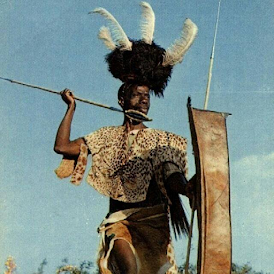ACHOLI TRADITIONAL MARRIAGE
Marriage.
Domestic Unit.
A typical household consists of a nuclear family (husband, wife, and unmarried children), although aged parents, unmarried siblings, offspring of deceased siblings, or others are often household members as well. All members of the household acknowledge the authority of its head, the husband; each wife or other adult female in the household has traditionally had her own fields, granaries, and kitchen or cooking hut.
Inheritance.
Inheritance has been, and largely remains, patrilineal. Apart from land, the rights to which were passed on equally to all sons, the eldest son was traditionally the designated heir of the father's property, although he was supposed to provide for the needs of his younger brothers.
Socialization.
Mothers are responsible for the initial care of their children and for much of their socialization. After weaning and up to the age of 5 or 6, however, much of the day-to-day caretaking of a child has customarily been done by an opposite-sex sibling or other preadolescent (often a member of the father's lineage), called lapidi (nurse-child). From early on, girls and boys learn gender-appropriate behaviors and activities, and these are reflected in both their play and their chores and other responsibilities. Sons have traditionally learned about farming, hunting, herding, and lineage and chiefdom traditions from their fathers and other lineage males; girls learn farming and domestic duties from their mothers. Since independence, formal schooling has provided a strong socializing influence from outside the home for more and more Acholi, especially those attending secondary school. Army membership has also supplied a distinct, if largely negative, socializing influence on many Acholi young men. Some Acholi mothers exclaim that they do not know their sons after they have been away in the army.



Keep up bro good publicity
ReplyDelete